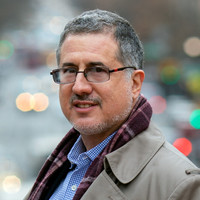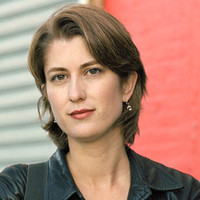Barton Gellman is a staff writer for The Atlantic and was previously a Pulitzer-winning reporter at The Washington Post. His latest book is Dark Mirror: Edward Snowden and the American Surveillance State and his latest essay is "The Election That Could Break America."
“I have found that I have a talent for accidentally pissing people off. ... I’m interested most in accountability and the use and abuse of power. So naturally it’s going to annoy people sometimes. And sometimes they take it like grown-ups and sometimes less so.”
Thanks to Mailchimp for sponsoring this week's episode.
















